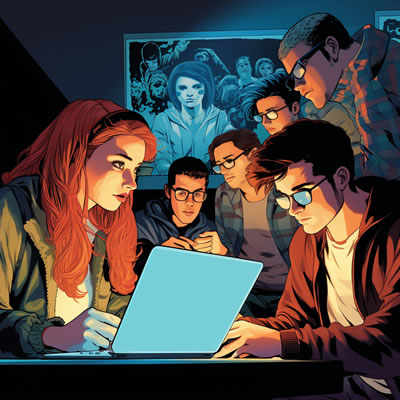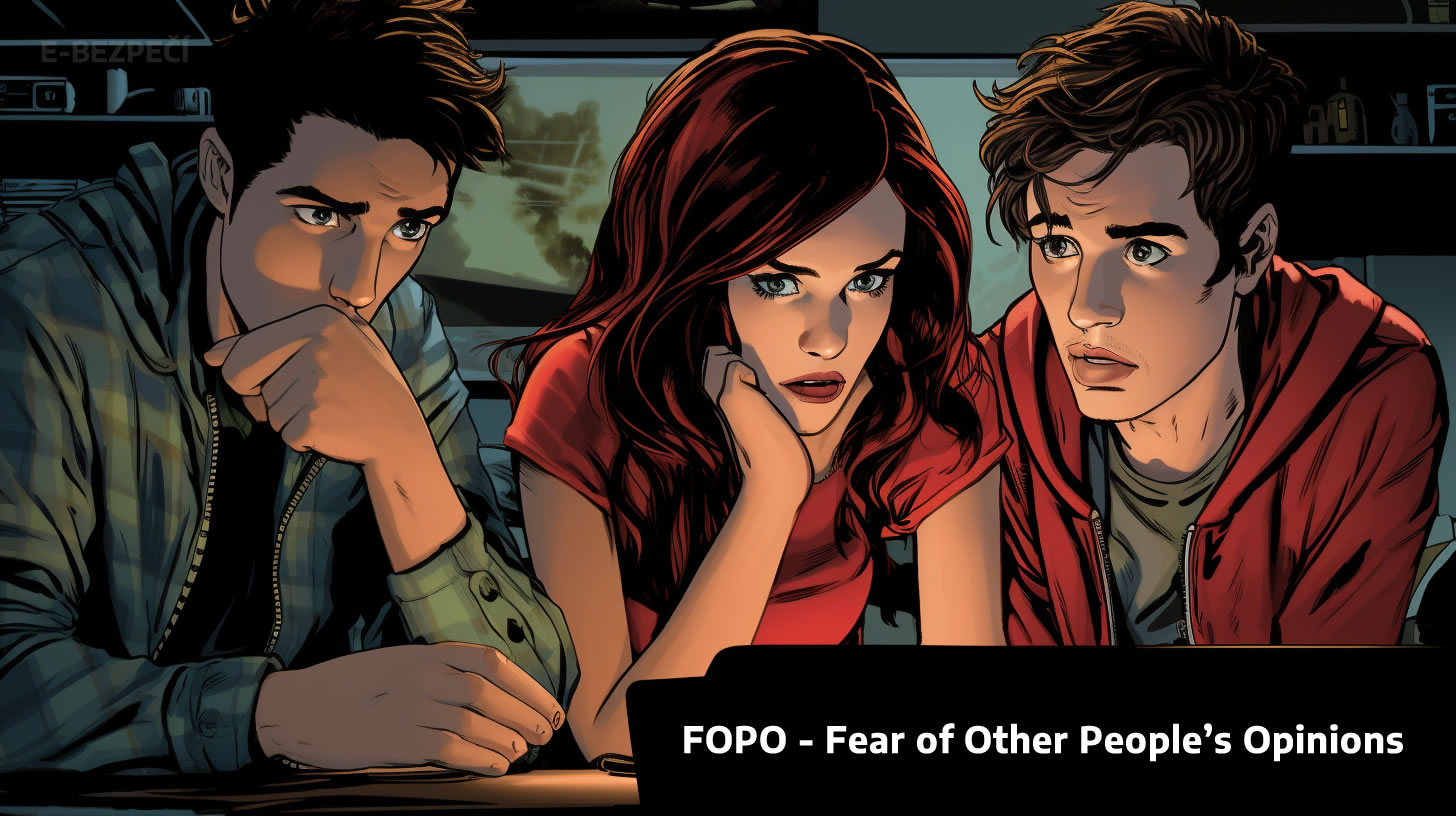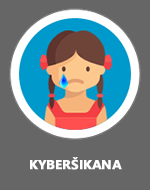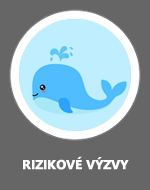 FOPO (Fear of Other People's Opinions) is a phenomenon that refers to the fear of what others think of us. This fear can significantly affect our decision-making, behavior, and overall well-being. Nowadays, when we are constantly exposed to records of other people's lives through social media, FOPO is very common.
FOPO (Fear of Other People's Opinions) is a phenomenon that refers to the fear of what others think of us. This fear can significantly affect our decision-making, behavior, and overall well-being. Nowadays, when we are constantly exposed to records of other people's lives through social media, FOPO is very common.
FOPO can manifest in various ways. One of them is excessive self-criticism, which leads to constant doubts about oneself and one's abilities. People suffering from FOPO often analyze every step they take and worry about how others perceive them. For example, Petra often wonders if her colleagues appreciated her presentation and looks for flaws in her performance.
Another manifestation is avoiding risks. Fear of failure or embarrassment can prevent people from taking on new challenges or trying new things. Martin, for example, turned down a promotion offer because he feared he would not be able to handle the new responsibilities and would be criticized. This fear paralyzed him so much that he decided to stay in his comfort zone, even though he had the potential to grow.
FOPO also manifests in conforming to others. People often try to fit in at all costs, even if it means giving up their own values and beliefs. Anna, for example, agrees with her friends' opinions even when she disagrees, just to avoid conflicts and be accepted. This kind of behavior can lead to a loss of identity and authenticity.

How is FOPO Related to the Online World?
FOPO (Fear of Other People's Opinions) is closely related to social networks and the online world. Social media constantly expose us to the opinions and evaluations of others, which can amplify our fears about how others perceive us.
Social networks often present idealized versions of people's lives, leading to constant comparisons with others and fear of not meeting these norms. People strive to get likes, positive comments, and approval, which can create pressure to conform to the expectations and standards of others.
An example is a situation where someone shares a post and then constantly checks how many likes and comments they received. If the reactions are not as positive as expected, it can lead to feelings of insecurity and loss of self-confidence. This phenomenon can also cause people to create content solely to please their followers rather than for their own genuine enjoyment.
Another aspect is online criticism and negative comments. The anonymity of the internet often leads people to be less considerate and more critical, which can deepen the fear of negative opinions. The presence of trolls and cyberbullying can increase FOPO and affect an individual's mental well-being.
This is confirmed by the study Children and the Cult of Beauty, conducted by Palacký University in Olomouc in collaboration with O2 in 2022, which highlights, for example, the issue of body shaming, which many Czech children are exposed to in the online environment. According to its conclusions, one-third of Czech children faced ridicule because of their appearance, and in real life, it was more than half. Children were most often mocked for their physical appearance (29%) or face and hair (26%). 22% of children experienced insults because of their clothing or mobile phone (brand, age of the mobile device). Only 8% of children admitted to mocking someone online, compared to 13% in the real (offline) environment.
How to Fight FOPO
Overcoming FOPO requires time and effort, but it is possible. One of the first steps is self-reflection. It is important to recognize when and why we fear the opinions of others. Keeping a journal where we write down situations in which we feel insecure because of others' opinions can be useful for understanding these fears.
Another step is setting priorities. Focusing on our own values and goals instead of what others think can help us better understand what is truly important to us. Writing a list of our values and goals and regularly referring to it can be useful for maintaining this focus.
Building self-confidence is another key aspect. Working on our self-esteem through positive thinking and self-realization can help overcome FOPO. Daily focus on the positive aspects of ourselves and our achievements, even if they are small, can have a significant impact.
Support from loved ones is also very important. Open communication with friends and family about our fears and seeking support can provide the necessary reinforcement and reassurance. It is important to have people around us who accept us as we are and support us on our journey to overcoming FOPO.
The opinions of others do not always reflect reality, and the key to happiness is being true to oneself. Overcoming FOPO can lead to greater freedom and satisfaction in personal and professional life.
For E-Bezpečí
Kamil Kopecký
Palacký University in Olomouc
































